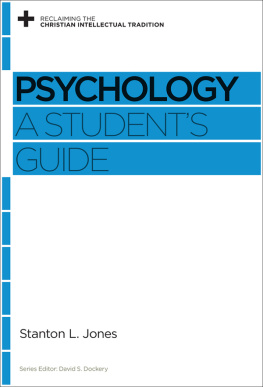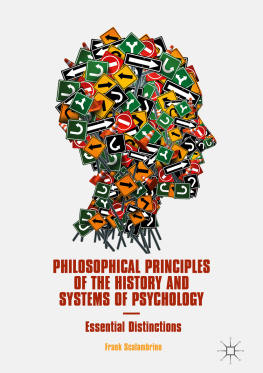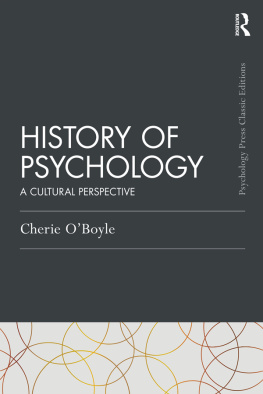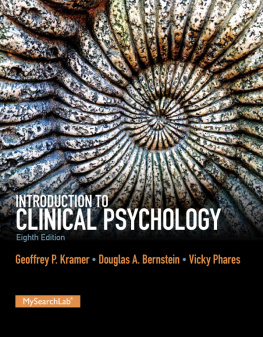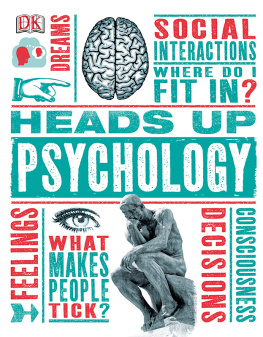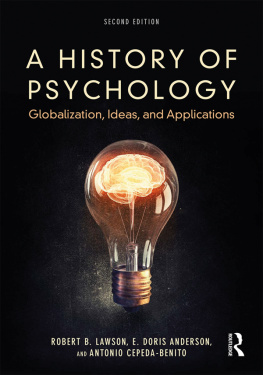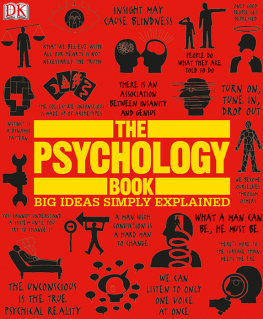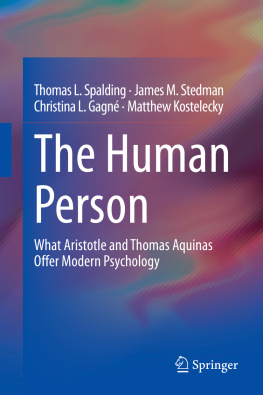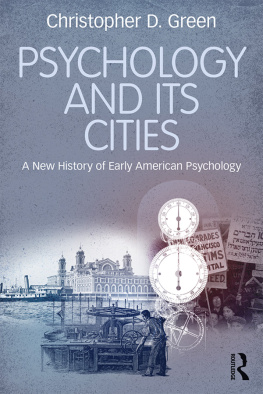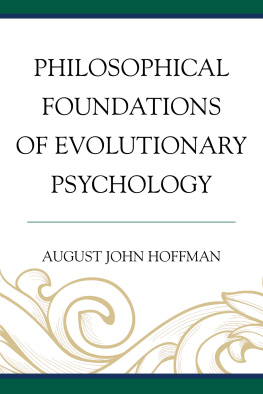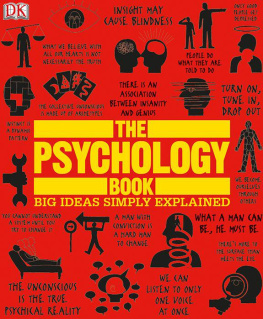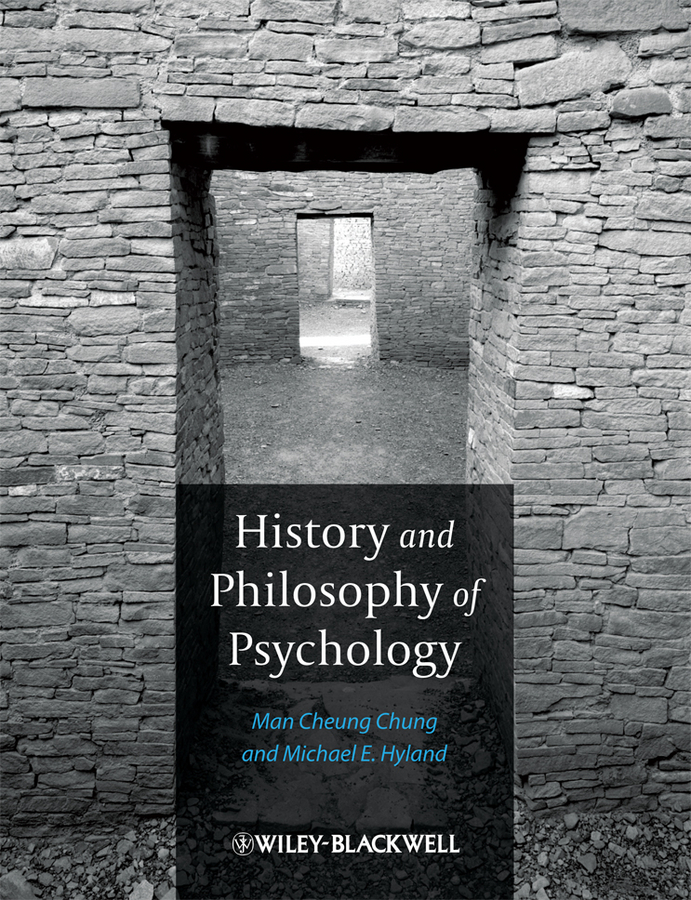To Catherine, Lia and Ethan. Thanks for your love and continuous support which keep me going. MCC
To Sandra, Kate, Thomas, Ed, Alice, Orin and Theo for being. MEH

This edition first published 2012
2012 Man Cheung Chung and Michael E. Hyland
Blackwell Publishing was acquired by John Wiley & Sons in February 2007. Blackwells publishing program has been merged with Wileys global Scientific, Technical, and Medical business to form Wiley-Blackwell.
Registered Office
John Wiley & Sons Ltd, The Atrium, Southern Gate, Chichester, West Sussex,
PO19 8SQ, UK
Editorial Offices
350 Main Street, Malden, MA 02148-5020, USA
9600 Garsington Road, Oxford, OX4 2DQ, UK
The Atrium, Southern Gate, Chichester, West Sussex, PO19 8SQ, UK
For details of our global editorial offices, for customer services, and for information about how to apply for permission to reuse the copyright material in this book please see our website at www.wiley.com/wiley-blackwell.
The right of Man Cheung Chung and Michael E. Hyland to be identified as the authors of this work has been asserted in accordance with the UK Copyright, Designs and Patents Act 1988.
All rights reserved. No part of this publication may be reproduced, stored in a retrieval system, or transmitted, in any form or by any means, electronic, mechanical, photocopying, recording or otherwise, except as permitted by the UK Copyright, Designs and Patents Act 1988, without the prior permission of the publisher.
Wiley also publishes its books in a variety of electronic formats. Some content that appears in print may not be available in electronic books.
Designations used by companies to distinguish their products are often claimed as trademarks. All brand names and product names used in this book are trade names, service marks, trademarks or registered trademarks of their respective owners. The publisher is not associated with any product or vendor mentioned in this book. This publication is designed to provide accurate and authoritative information in regard to the subject matter covered. It is sold on the understanding that the publisher is not engaged in rendering professional services. If professional advice or other expert assistance is required, the services of a competent professional should be sought.
Library of Congress Cataloging-in-Publication Data
Chung, Man Cheung, 1962
History and philosophy of psychology / Man Cheung Chung and Michael E. Hyland.
p. cm.
Includes bibliographical references and index.
ISBN 978-1-4051-7946-1 (pbk. : alk. paper) 1. PsychologyHistory. 2. PsychologyPhilosophy. I. Hyland, Michael. II. Title.
BF81.C48 2012
190dc23
2011017899
A catalogue record for this book is available from the British Library.
This book is published in the following electronic formats: ePDFs 9781444345759; mobi 9781444345773; ePub 9781444345766
Preface
Some people, especially non-academics, have this notion that university professors spend all their time doing research and nothing else. This is not the case! For example, we teach, and often in more than one area. We have taught health psychology courses and even a course on history and philosophy of psychology at the University of Plymouth. The course was popular with students and it was great fun to teach. We both love it. Man particularly loves the philosophical part and Michael loves the history as well as the theory.
Its worth noting that there are some differences between us. To begin with, Man is Chinese and Michael is English; Man lives in a tiny house and Michael lives in a mansion; Man kills plants simply by touching them and Michael grows his own fruits and vegetables. But Man eats a lot faster and in larger quantities than Michael. That said, there are quite a lot of similarities between us. Our first names start with the letter M and we are fox researchers who do many different projects simultaneously. We both have a sense of humour and are generally nice, approachable guys. We are both theoretical and empirical at the same time. We both love writing, thinking and publishing and love seeing our work in print. So, when Man got the idea to write a book on the history and philosophy of psychology, he thought of Michael right away. We decided that Michael would take a lead on the history and Man would take a lead on the philosophy.
Man had published papers and edited books in the area of philosophy of psychology. Michael had published articles and a book on theoretical psychology, but not on the history of psychology. The history component of this book would have been very weak were it not for the fact that Man bullied Michael into reading original articles on the history of psychology, resulting in Michael finding lots of interesting bits of information and snippets that are typically missing from history of psychology texts. Over the course of writing the book, Man and Michael have sat down, drunk many cups of Chinese tea and discussed the way theory, philosophy and history merge. That was hard but very enjoyable work indeed. They still talk, even though Man now works at Zayed University in Abu Dhabi in the United Arab Emirates.
Man Cheung Chung
Michael E. Hyland
Introduction
Some Quick Reasons for Studying History and Philosophy of Psychology
This book covers the history of psychology, the people and their theories, and shows how the ideas in the development of this discipline are linked to ideas in philosophy, both East and West. This book is intended for laypeople interested in the topic, and undergraduate and postgraduate students in psychology. Students might wonder why they should study this topic. Very briefly, there are four reasons.
Firstly, it is useful to know about history because history can provide information about the present. Those who do not learn from history are condemned to make the same mistakes that have gone before. After all, it is easy to keep reinventing the wheel but reinventing the wheel is not the best way of spending ones life! Many of the issues that faced the early psychologists still face psychologists today. Controversies have persisted throughout the history of psychology.
Secondly, psychologists are not the only people who are interested in humans, and some of the questions that psychologists address, such as how to be happy or human, have been studied since the dawn of time. It would be arrogance to suppose that psychologists have the only insight into human nature. In order to truly understand humans, it is necessary to use insight from many sources, one of which is philosophy. Another source of understanding is that of common sense or an intuitive understanding of people.
Thirdly, history and philosophy broaden the mind. Like travel, it is helpful to see how other people live and deal with problems, and history and philosophy allow the mind to travel in realms beyond the standard psychology textbook. The history of psychology provides a background to the ideas of modern psychology. It shows how those modern ideas have developed.
The final reason is that these topics are intrinsically interesting. There are real people in the history of psychology with real stories to tell. Many of the thoughts and theories of these early psychologists are stimulating and thought provoking, as are their philosophical ideas. We have written the book with an emphasis on finding the interesting parts in the history and philosophy. We hope that students enjoy reading our book as much as we have enjoyed writing it.


